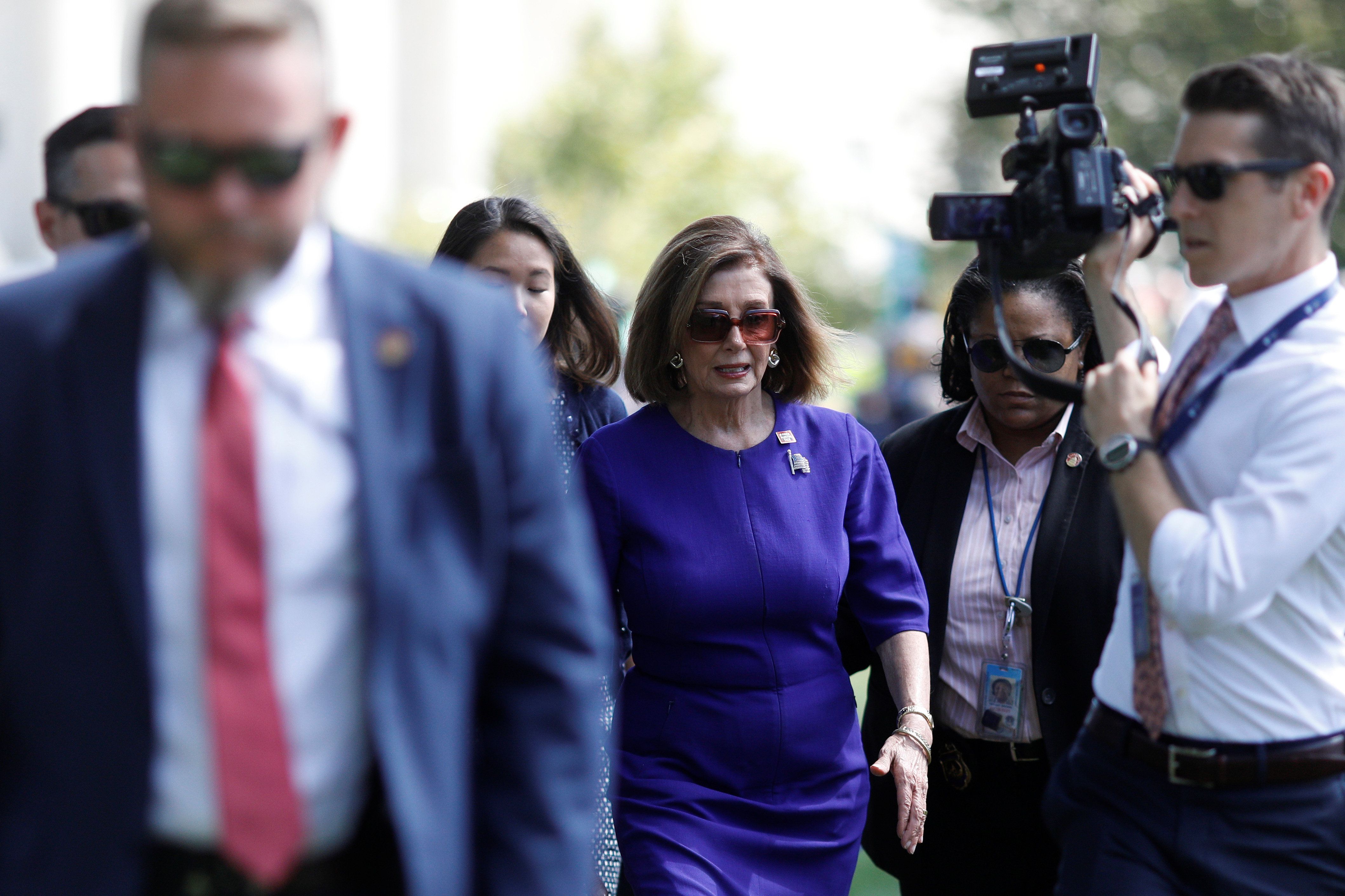Buckle Up, Impeachment is On! In a dramatic turn of events, Speaker Nancy Pelosi announced yesterday that the House of Representatives will formally open an impeachment inquiry of President Trump, claiming he had seriously "violated the Constitution" when he allegedly tried to coerce Ukrainian officials into investigating 2020 Democratic presidential front runner Joe Biden, and his son. Pelosi has heard calls for impeachment for months, but was reluctant to pull the trigger over concerns that the ensuing political circus could hurt the Democrats' 2020 election chances. But as even key moderate Democrats in swing districts came out in support this week, she chose to strike. If a majority in the Democrat-controlled House votes to indict (impeach) Trump for violations of the constitution, he would face a trial in the Senate where two-thirds of the body would need to vote to convict and remove him from office. That's an almost impossibly high hurdle in the GOP-controlled Senate. This process – perhaps the most momentous US political drama in a generation – is sure to be extremely divisive and unpredictable. Buckle up.
UK Rule of Law – Brexit has made British democracy and rule of law the subject of much debate in recent months, and jokes about the UK's political dysfunction have circled the globe. (Your Signal authors might have indulged in one or two.) Brexit supporters say the people have spoken, and that it's undemocratic to try to subvert their will. Brexit critics claim that a prime minister elected only by members of the ruling party wants to push the country toward an extreme form of Brexit that wasn't on the ballot in 2016. Parliament and prime minister(s) have been constantly at odds. But on Tuesday, the 11 justices of the UK's supreme court ruled unanimously that Prime Minister Boris Johnson had violated the law by shutting down parliament in a time of national crisis—and, crucially, the prime minister accepted the court's authority. Whatever one's view of Brexit, and however many crises follow, Tuesday was a good day for checks and balances and the rule of law.
Nuclear Annihilation – This simulation of a nuclear war between the US and Russia is worth a few minutes of your time, if you can stomach it. Developed by Princeton researchers based on "real force postures, targets, and fatality estimates," it shows, in mesmerizing yet horrifying detail, (and with exquisite sound design) how a conventional military conflict in Europe could spiral out of control, provoking a tactical nuclear exchange and then an all-out nuclear war that kills or maims more than 90 million people in a matter of hours. It's a reminder that a generation after the end of the Cold War, there are still roughly 16,000 nukes pointed directly at military and civilian targets around the world, many of them ready to launch at a moment's notice. In addition, the demise of the Intermediate-Range Nuclear Forces Treaty between the US and Russia this year has put new tactical weapons in play, raising the risk of an accident or miscalculation that leads to catastrophe.
What We're Ignoring:
Russian Military Boasts — Ever ready to challenge (at least rhetorically) the superiority of the West and weapons, the Kremlin responded to attacks on Saudi oil refineries last week with a sales pitch for its own S-400 anti-missile systems. We're ignoring this Moscow bravado because a) there is no way Riyadh will anger the US as Turkey did by purchasing this Russian air-defense system, especially when the Saudis are on the front lines of escalating hostilities between the US and Iran, and b) a walrus just took out a Russian navy boat. Sure, it was filled with researchers from the Russian Geographical Society (who thankfully emerged unharmed), but still.
